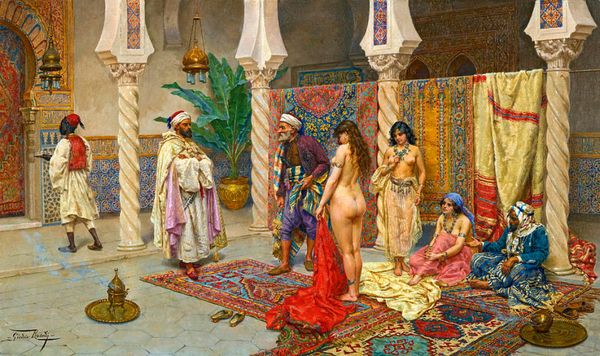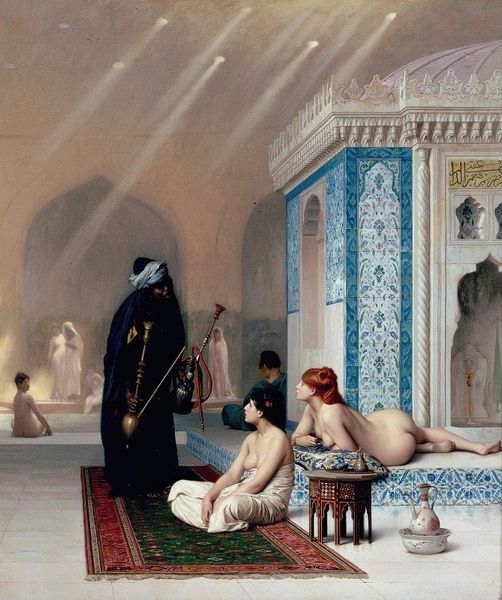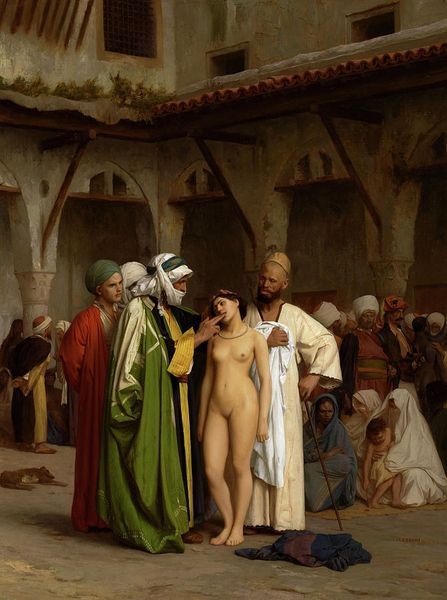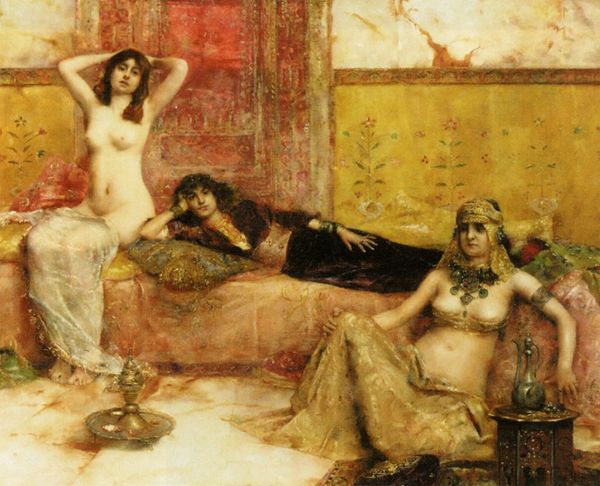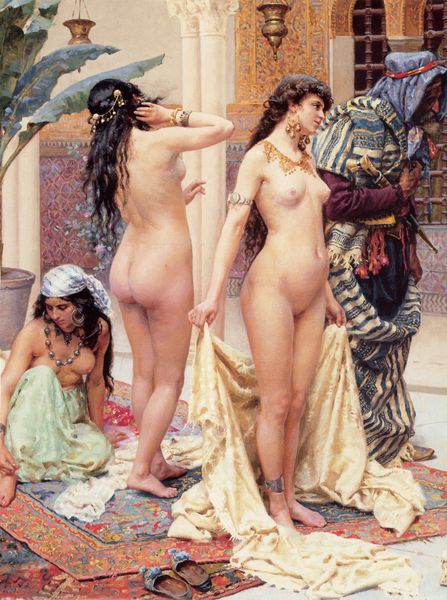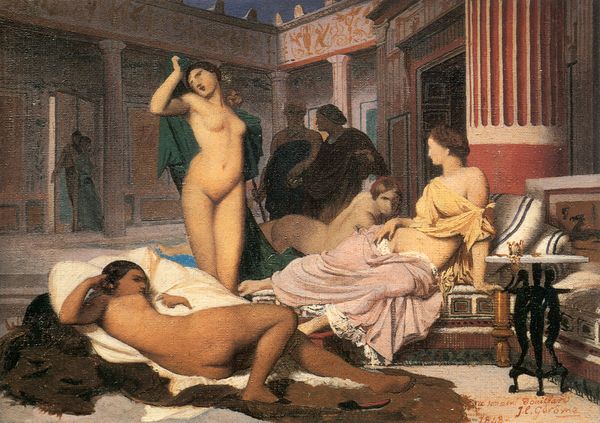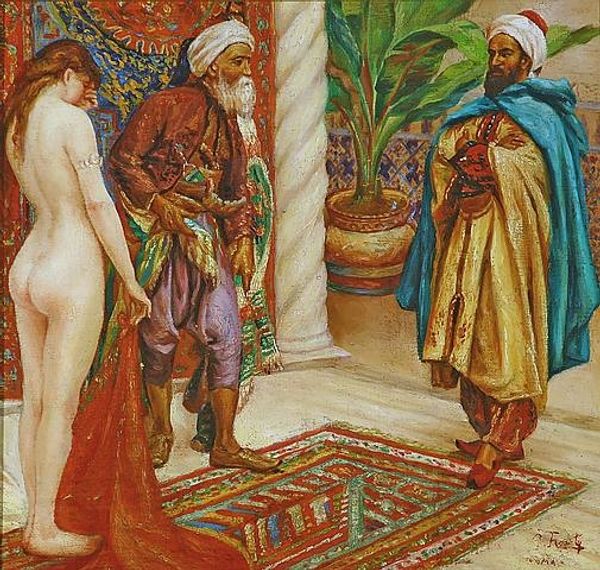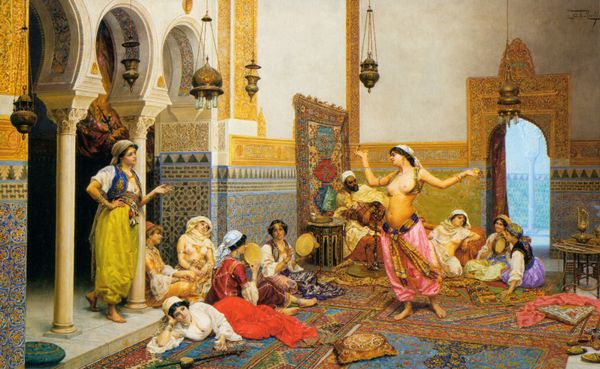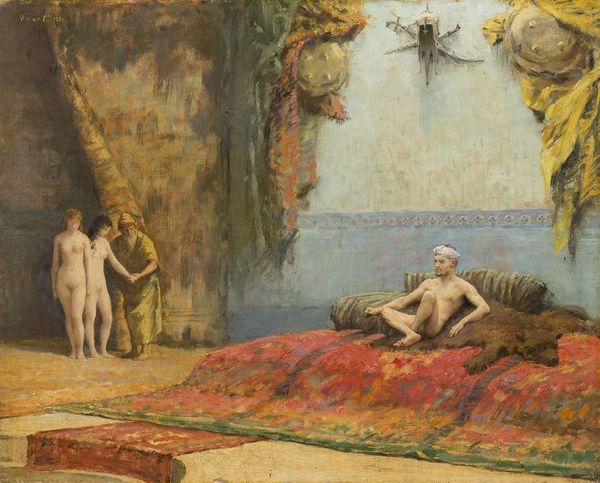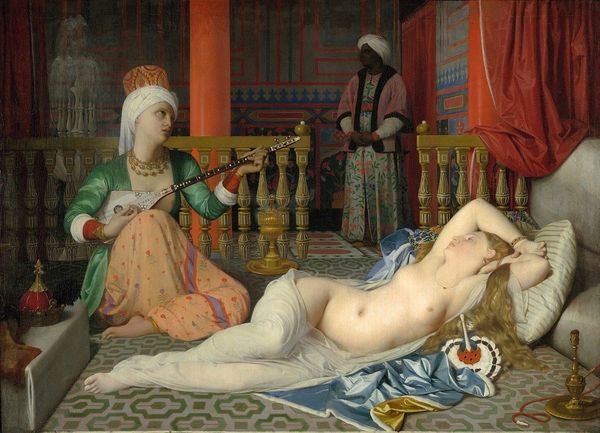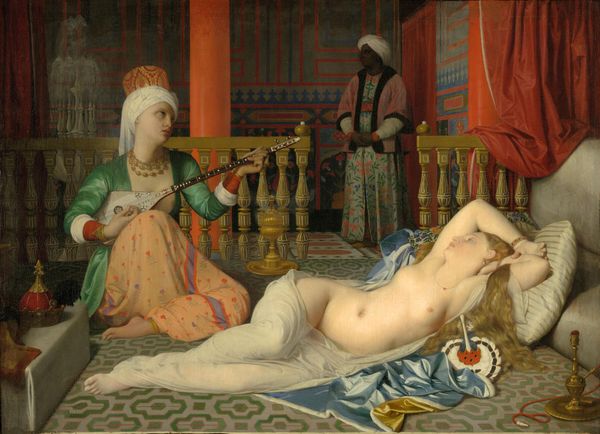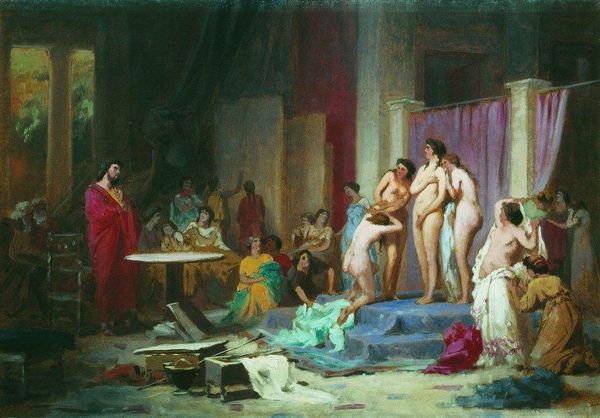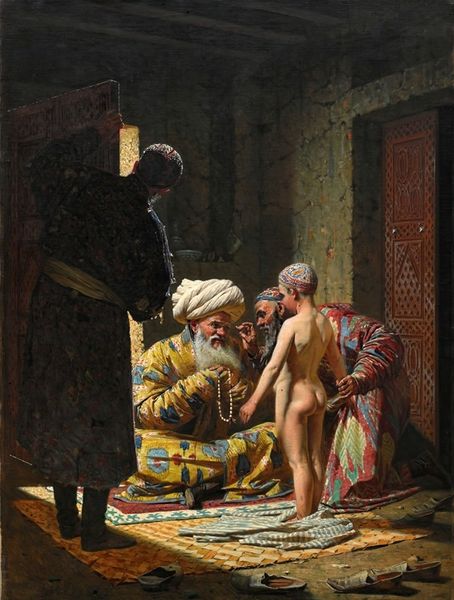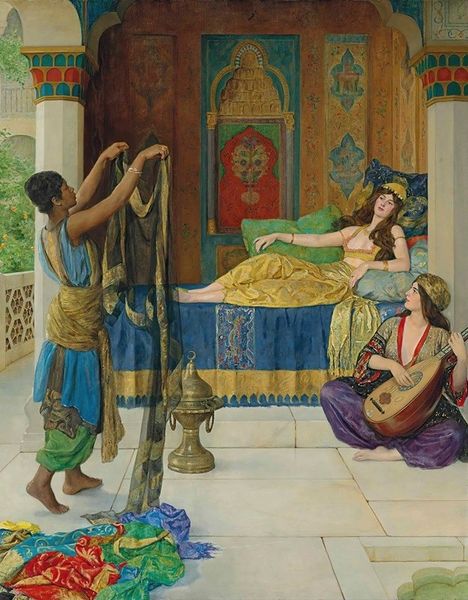
painting, oil-paint
#
narrative-art
#
painting
#
oil-paint
#
figuration
#
orientalism
#
genre-painting
#
academic-art
#
nude
Copyright: Public domain
Editor: Here we have "Inspecting New Arrivals," an oil painting attributed to Giulio Rosati. There’s definitely an air of staged exoticism about this piece; the women are rendered so passively. What strikes you about it? Curator: What I find immediately unsettling, yet crucial to unpack, is the visual representation of power dynamics rooted in orientalism. How does the painting reinforce colonial narratives, presenting a fantasized and eroticized depiction of the "Orient?" Editor: Well, there’s a blatant display of the female form against what seems like an orientalist backdrop – very decorative. So the male figures are the “inspectors," positioned to judge, which feels…icky. Curator: Exactly. Rosati, an Italian artist, never actually visited the places he depicted. So, we have layers of mediation and cultural appropriation at play. This becomes less about portraying a reality and more about fulfilling the desires of a Western European gaze, feeding into pre-existing prejudices and power structures. The question becomes: who is really being "inspected" here? Editor: The title is misleading then! I suppose that’s part of how the painting reinforces existing power imbalances, it uses the female body to portray an exotic fantasy for European consumption. Curator: Precisely. This form of representation perpetuates harm and reproduces dangerous stereotypes. Even the so-called 'artistic merit' can't negate the social and historical damage it contributes to. Editor: I guess looking at the social and political context allows you to read so much more into this. Thank you, I will not view art in the same way. Curator: The importance lies in acknowledging and confronting the legacy of colonialism, in interrogating how visual culture perpetuates inequality, in a hopeful approach toward justice and healing.
Comments
No comments
Be the first to comment and join the conversation on the ultimate creative platform.
